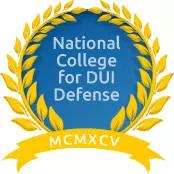If you operate an automobile in a public area while intoxicated, you can be charged and convicted under Texas DWI laws. A lawful Texas DWI arrest can have civil and/or administrative consequences, such as suspension of your driver’s license, even if you are not convicted. A conviction for DWI in Texas will result in the imposition of additional criminal penalties. This article will elaborate on some of the penalties associated with DWI convictions in Texas.
First Offense Penalties
Administrative Penalties
A lawful arrest for a first-offense Texas DWI could lead to administrative penalties such as revocation of your driver’s license from DPS (Department of Public Safety). If you request a court hearing, you can continue to drive under a “Notice of Suspension” until the completion of the hearing, and you receive a final decision. If you do not request a hearing, you will have your license suspended for 90-180 days, which will start from the 41st day of your arrest.
 Texas DWI laws related to implied consent require you to submit to a chemical test. If you refuse to undergo this test, then you could receive an automatic suspension of your license for up to 180 days upon the expiration of your temporary license. This additional suspension period can only be set aside if the criminal court ultimately acquits you of DWI in Texas.
Texas DWI laws related to implied consent require you to submit to a chemical test. If you refuse to undergo this test, then you could receive an automatic suspension of your license for up to 180 days upon the expiration of your temporary license. This additional suspension period can only be set aside if the criminal court ultimately acquits you of DWI in Texas.
Criminal Penalties
In Texas, the first DWI conviction is usually a class B misdemeanor. However, if your Blood Alcohol Percentage (BAC) is 0.15 percent or higher, it will be filed as a class A misdemeanor. A first-offense Texas DWI conviction means you may face between 72 hours and six months of imprisonment, which can go up to one year if you exceed 0.15 percent BAC.
A judge may impose a maximum fine ranging from $2,000 to $4,000. The sentence may additionally include probation, community service, and a DWI education program. For your first conviction under DWI in Texas, the court will suspend your driver’s license for a minimum and maximum of 1 year, however, there are ways to avoid this suspension if you are placed on probation for a first offense and complete a DWI education program within 180 days of starting probation. Texas also imposes an annual surcharge between $1,000 and $2,000 for three years.
Second Offense
Administrative Penalties
If a Texas DWI arrest occurs within 10 years of the previous offense, DPS may impose an enhanced license suspension, regardless of your conviction status. Failing a chemical test by having a BAC of at least 0.08 percent will result in a one-year license suspension. Refusal to take a chemical test will lead to a license suspension of two years. DPS may also impose an annual license surcharge of $1,500 for three years, which will go up to $2,000 if your BAC was at least 0.16 percent.
Criminal Penalties
In Texas, a second DWI is a class A misdemeanor. Criminal penalties usually include jail-time for 30 days to one year. A judge may impose a fine of up to $4,000, apart from various fees and penalty assessments. Under Texas DWI laws, a third offense is considered a third-degree felony. You can face state imprisonment from two to 10 years, as well as fines up to $10,000. You may also face probation, which can last up to 2 years for a Class A or Class B misdemeanor and anywhere between 2 and 10 years for a felony conviction.
Avoid DWI Penalties with an Attorney
If you are facing a DWI conviction, you can fight it. At Flood & Associates our team of experienced, passionate, and dedicated DWI defense attorneys will give you the best defense possible. With an impressive win rate and an in-house blood laboratory, no one in the state of Texas compares to our resources and team. Call our team 24/7, 365 at 713-224-5529 for a free case review.










